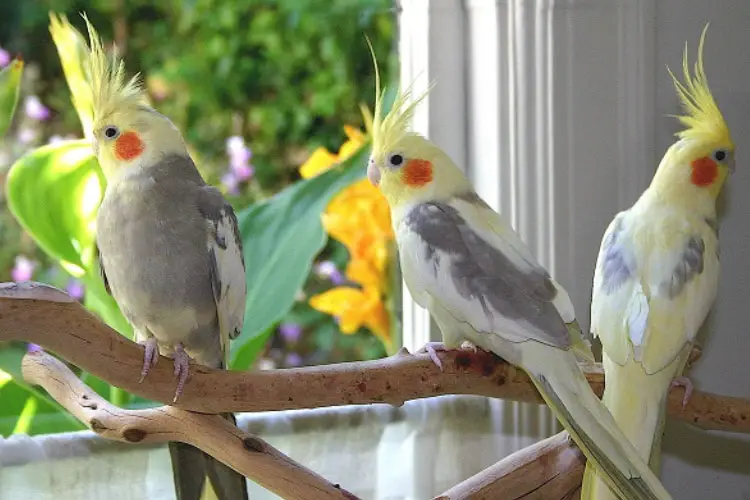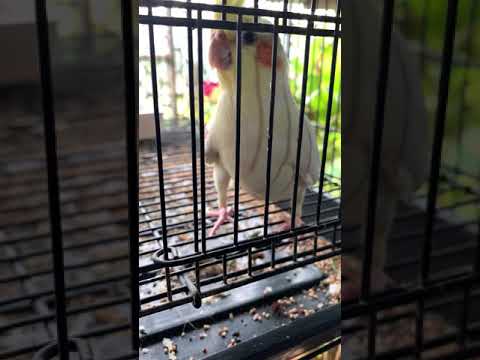If you are an avid bird lover like me, you know how sensitive a pet bird’s stomach can be. For instance, if you own a cockatiel, it’s normal for you to be cautious about what your pet bird eats.
So it is a valid question: Can cockatiels eat tomatoes?” In short, cockatiels can indeed eat tomatoes. But, since fresh tomatoes are very rich in citric acid content, veterinary experts suggest that you refrain from feeding your pet bird fresh tomatoes.
However, there are other science-based facts behind it as well that you need to know. Therefore, stick with us till the end of this discussion.
Can You Feed Tomatoes To Cockatiels?
It is absolutely safe for you to feed tomatoes to cockatiels, but you should never feed them frequently.
It’s because, as we have mentioned, tomatoes are full of citric acid (it’s a citrus fruit). That’s why it can easily cause acidity and stomach ulcers to your pet bird.
You should note that the stomachs of cockatiels are not as strong as humans. So, even if a human can handle strong acidity, your pet bird might not. Therefore, you should refrain from feeding your feathered friend fresh tomatoes.
Now, if you can be careful enough to give your pet bird moderate amounts of dried tomatoes every day (one or two slices per day), it can indeed be beneficial for your pet bird.
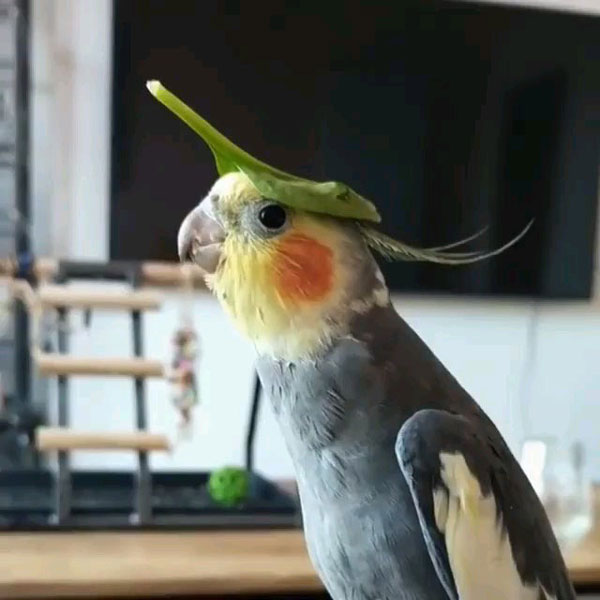
It’s because tomatoes are filled with different types of vitamins (vitamin A, C, and K). And there are a bunch of antioxidants in them as well.
So, feeding it can be beneficial only if you can practice moderation. For instance, you can also give your cockatiel one or two slices of dried tomatoes every morning to start the day.
Now, remember that green tomatoes contain a higher acidic content than ripe ones. So, it’s best if you feed only red tomatoes to cockatiels (if you feed tomatoes to your pet bird at all).
In addition to green / unripe tomatoes, you should also refrain from feeding mature plants, tomato leaves, tomato vines, and branches of tomato trees as well. It’s because these contain a high dosage of Solanine.
According to a 2009 study, Solanine is an antifungal and anti-pesticide compound that prevents trees from getting infected by pests and fungus. And, due to this toxic food element (Solanine), feeding leaves and branches of tomatoes to your cockatiel is extremely dangerous.
So, you should be careful that your pet friend does not eat any tomato leaves by mistake.
Do Cockatiels Like Tomatoes?
Cockatiels, just like many other birds, love sour fresh fruits and vegetables. That’s why, if you give them tomatoes, they will gladly eat these without any hesitation. On top of that, since tomatoes are colorful fruits, they visually attract a wide variety of birds, including cockatiels.
Moreover, tomatoes have tasty seeds that birds love to eat. As a result, whenever a cockatiel sees a ripened tomato, it won’t wait a second before grabbing a bite out of it (if the bird is hungry).
Check out this video of a cockatiel enjoying a tomato:
Health Benefits And Risks For Cockatiels Eating Tomatoes?
Tomatoes are actually beneficial to cockatiels in many ways if you moderately feed them. On the other hand, overfeeding this fruit to your pet bird is extremely dangerous as well.
Benefits:
According to 2005 research, tomatoes have the following main benefits:
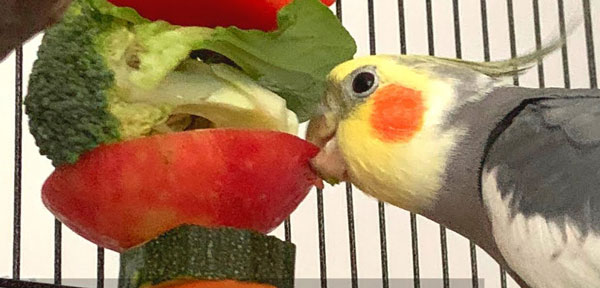
1. High dosage of vitamin A:
Vitamin A can ensure that your pet bird grows strong beaks and nails. Therefore, it’s common sense that feeding tomatoes in small proportions are beneficial.
2. High vitamin C content:
Vitamin C is necessary for high healing capability and an active immune system. That’s why feeding Ripe Tomatoes in small amounts can be extremely helpful.
3. Rich in vitamin K:
Vitamin K promotes blood cell regeneration in pet birds. And, ripe tomatoes are full of vitamin K. So, you can keep your cockatiel healthy all the time by feeding it tomatoes in small doses.
4. High fiber content in seeds:
The fruit seeds of tomatoes can contain high amounts of fiber which is extremely important for a healthy metabolic system.
Health Risks:
1. Highly acidic content:
Since tomatoes are rich in citric acid, they can cause acidity and food poisoning in the stomach of a cockatiel.
2. Risk of Solanine intake:
If you feed raw tomatoes to your cockatiel, there’s a chance that your bird might eat the green leaves or the green “top” of a tomato, which contains Solanine.
3. Chance of bad habit:
Birds tend to love sour fruits and vegetables a lot. That’s why feeding tomatoes in a consecutive manner can create a bad habit for your cockatiel. As a result, it might be reluctant to eat other healthy fresh foods.
How Much Tomatoes Should Cockatiels Eat?
It’s better if you can feed dried tomatoes to your cockatiel. It’s because they contain less acidic content than fresh tomatoes.
Only one or two slices of dried tomato per day are the safe limit for mature cockatiels to eat tomatoes. More specifically, you should cut a single medium-sized tomato into 6 pieces and feed only two slices to your birds every day (if you feed it in a dried state).
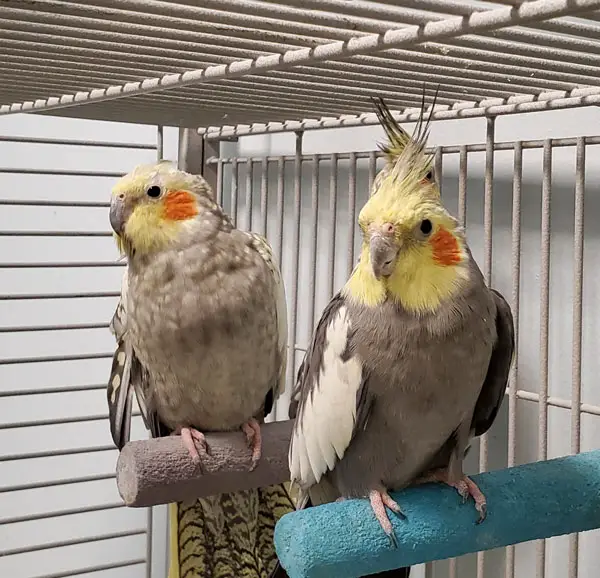
Now, if you are planning to feed fresh tomatoes to your bird, you should only feed one slice (1/6 of a whole tomato) every 2 to 3 days.
How Do You Prepare Tomatoes For Cockatiels?
Veterinary experts recommend that you only feed ripe tomatoes to your cockatiel in a dried state. You should cut a single fresh tomato into 6 equal pieces and let it dry in the sun for about 3 hours.
After that, feeding one or two slices every day should be sufficient for your cockatiel.
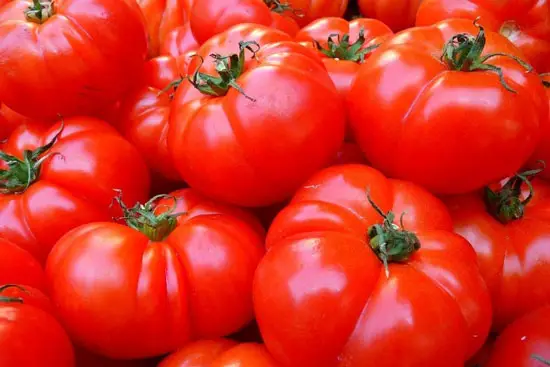
Can You Feed Tomatoes To Baby Cockatiels? If So, How?
You shouldn’t feed fresh tomatoes to a baby cockatiel. It’s because even a single slice of fresh tomato can cause acidity to the baby bird.
However, you can feed tomato seeds to your baby pet if you want to. To do that, you must extract seeds out of tomatoes manually and dry them in the sun for 2 to 3 hours. Then, you can feed the seeds in small amounts every day to your baby cockatiel.
FAQs
If your cockatiel has accidentally overeaten tomatoes, at first, you should make it drink a lot of clean water. After that, you should call a veterinary expert in your locality and take professional help.
If you can make sure that you will feed your pet cockatiels only dried tomatoes and in strict moderation, it’s safe to feed tomatoes. Otherwise, we recommend totally refraining from feeding it to your pet bird.
Final Verdict
Well, there you have it, people. Now, you’ve got a clear understanding of the query “can cockatiels eat tomatoes?”.
The final conclusion of this discussion here is that you can indeed feed tomatoes to cockatiels. However, you should never overdo it. You should feed tomatoes only in a dry state.
Do you know if your cockatiels can eat cheese or watermelon? Read our articles about it to learn more.
